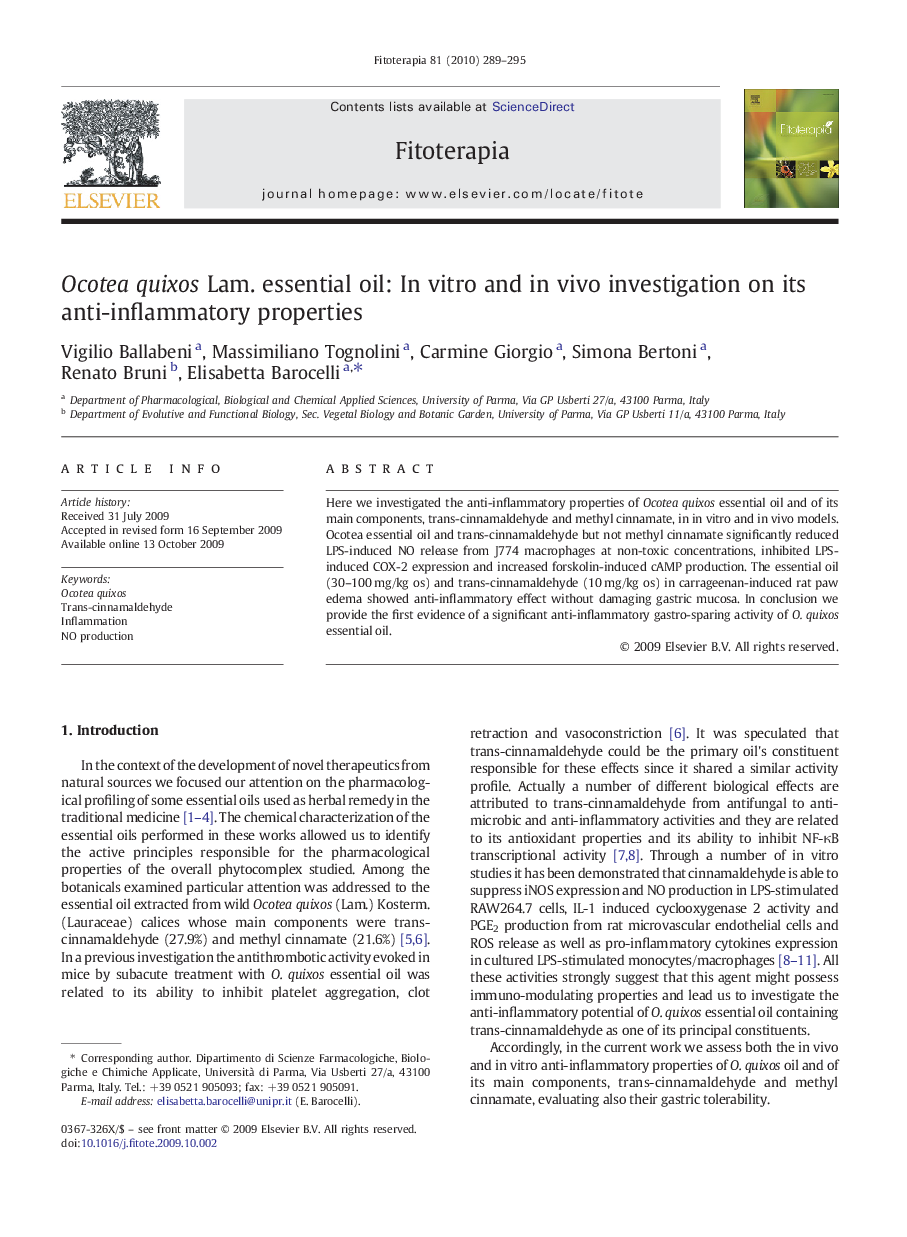| Article ID | Journal | Published Year | Pages | File Type |
|---|---|---|---|---|
| 2539387 | Fitoterapia | 2010 | 7 Pages |
Here we investigated the anti-inflammatory properties of Ocotea quixos essential oil and of its main components, trans-cinnamaldehyde and methyl cinnamate, in in vitro and in vivo models. Ocotea essential oil and trans-cinnamaldehyde but not methyl cinnamate significantly reduced LPS-induced NO release from J774 macrophages at non-toxic concentrations, inhibited LPS-induced COX-2 expression and increased forskolin-induced cAMP production. The essential oil (30–100 mg/kg os) and trans-cinnamaldehyde (10 mg/kg os) in carrageenan-induced rat paw edema showed anti-inflammatory effect without damaging gastric mucosa. In conclusion we provide the first evidence of a significant anti-inflammatory gastro-sparing activity of O.quixos essential oil.
Graphical abstractFigure optionsDownload full-size imageDownload as PowerPoint slide
